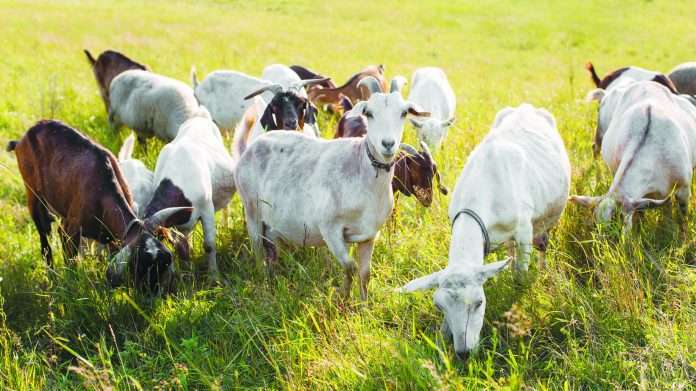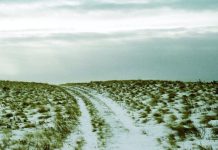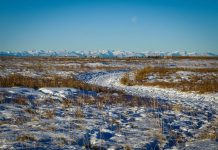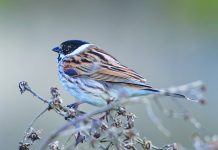For two weeks in fall 2024 about 800 goats grazed a 58-hectare area of the Rubbing Stone Hill Natural Parkland Zone in Nose Hill Park. The number of goats has increased from past years because it allows the same amount to be done in half the time. Like elk and bison, the herd of livestock reduces overgrown vegetation, shrubs, and trees in grasslands. Parking was limited when the Nose Hill 64 Avenue NW parking lot partially closed to accommodate moving the goats in and out of the park. Program Ambassadors were on site at Nose Hill Rubbing Stone Hill north of the parking lot. As a precaution, parts of the park and pathways were temporarily fenced off to public access during this grazing period. Park users were asked to follow all posted signage and closures. They were not to approach the goats and were directed to avoid electric fences used to contain the animals. Cyclists should have slowed down near grazing areas. Visitor dogs had to be kept on leash for their safety because off-leash herding dogs were working in the park.
In 2016 City Council approved an amendment to the Parks and Pathways bylaw to permit targeted grazing and help recover rough fescue habitat. Depending on terrain, there have also been goats in Confluence Park, McHugh Bluff, and Ralph Klein Park, while sheep were used in an area of the Weaselhead. Goats are preferred for woody material and undergrowth, but sheep are considered better for pasture-like areas. Other methods of vegetation control combine mechanical (hand pulling) and chemical spraying. The use of grazing comes with value added for biodiversity which helps native seeds to germinate and grow. The City gains both citizen interest and engagement to promote public education.










